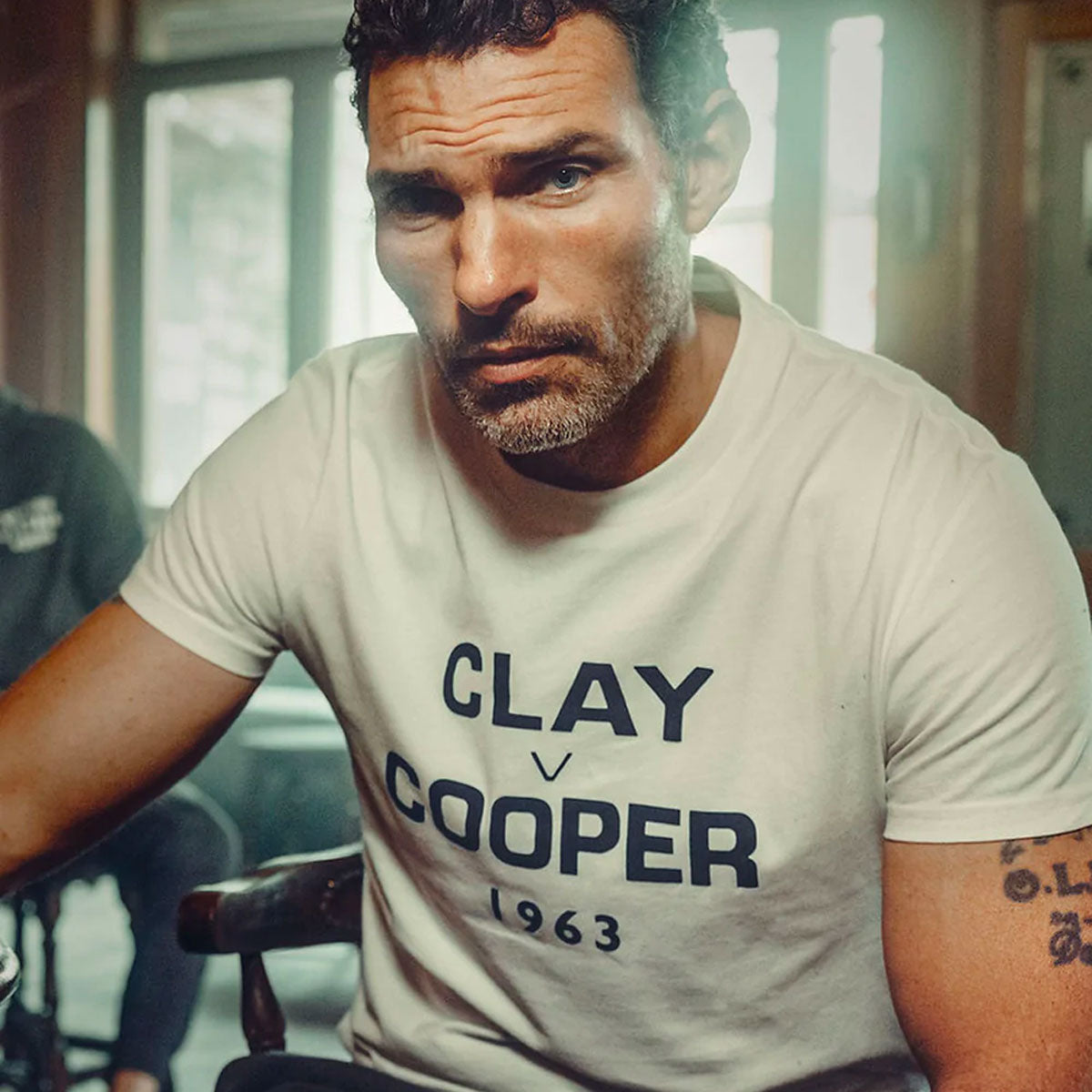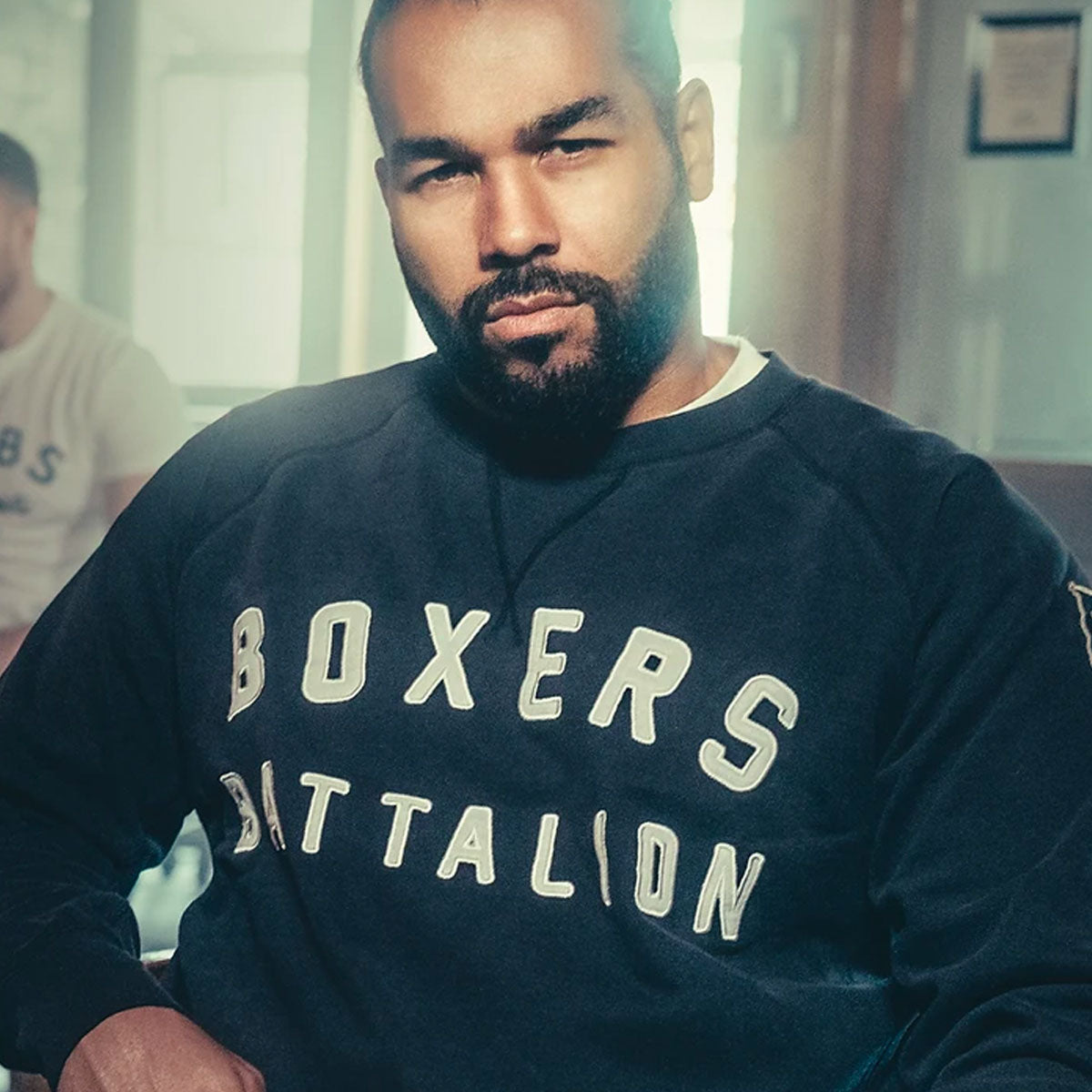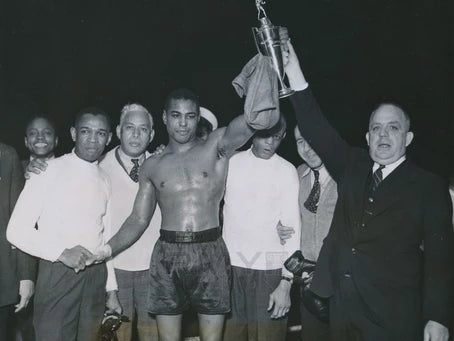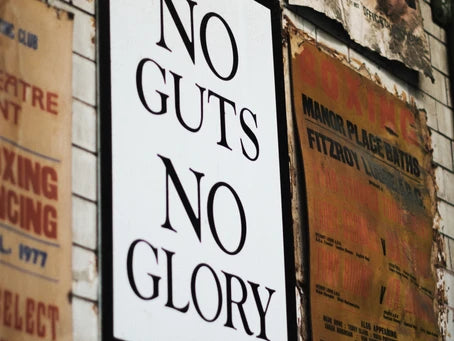JOE BUGNER - A LIFE OF FISTIC TRAVELS
Contributed by Paul Zanon
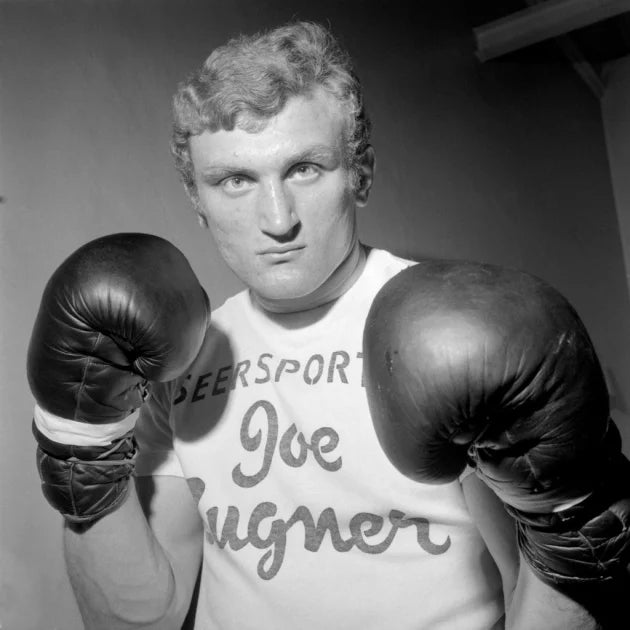
“I remember leaving our village Szőreg when I was six. The Russians moved in and my mum, Margaret, moved us out. She was a single parent and she left the country with five children. She risked a long prison sentence if she was caught but she put us on a bus for a while and then we walked through the night across the border to a refugee camp in Yugoslavia.”
www.couriermail.com/au
Born in Szőreg, southern Hungary on 13 March 1950, József Kreul Bugner left his country of birth as a consequence of the Soviet Invasion and his family relocated to St Ives Cambridgeshire, Britain in 1956. Bordering the Fenlands in Huntingtonshire, Bugner, like many other boxers from the area, such as Eric Boon and Dave Boy Green, was bestowed the moniker of ‘Fen Tiger’ for a short time.
Young Bugner took up a number of sports and by the age of 14 he was national junior discuss champion. However, as he started to grow into his 6ft 4in frame, weighing north of 200lbs, boxing grabbed his undivided attention.
After 16 amateur fights (13 wins), 17 year old Bugner made the bold leap to the professional ranks. However, the Cambridgeshire resident’s maiden voyage didn’t go as planned. On 12 December 1967 he fought Birmingham truck driver, Paul Brown at the Anglo American Sports Club in Mayfair, who boasted one victory and three losses. Bugner was knocked out in the third round.
In Bugner’s next 33 fights, he clocked up 31 victories one further loss and a draw. Notable scalps along the way included Britain’s Johnny Prescott and Brian London, and a third round stoppage over the Bayonne Bleeder, Chuck Wepner (fight was stopped in the third due to Wepner sustaining a badly cut eye). The other name of note was Ray Patterson, brother of former world heavyweight champion, Floyd, who Bugner comfortably beat on points. Incredibly, he amassed this 34 fight trail by the age of 20. Unfortunately, one fight amongst that medley which Bugner would remember for the wrong reasons was against Ulric Regis on 11 March 1969. After losing the fight on points to Bugner over eight rounds, the Trinidad and Tobago fighter died four days later from a clot to the brain. The verdict on the death was classified as accidental.
Three days after his twenty first birthday, on 16 March 1971 at the Empire Pool, Wembley, Bugner took on ring veteran and British boxing legend, Henry Cooper, for his British, Commonwealth and European titles. In Cooper’s previous 11 contests, he’d only lost twice, against Floyd Patterson and Muhammad Ali, and had beaten the likes of Jack Bodell (twice), Karl Mildenberger and Billy Walker. Also, 10 out of the 11 contests were for titles. Despite being the older man by almost 16 years, Cooper was the favourite.

After 15 hard fought rounds, Bugner clinched the slimmest of victories by a quarter of a point and in doing so relieved Cooper of the British, Commonwealth and European heavyweight crowns. Cooper retired straight after and without the opportunity for a rematch Bugner was never able to fully convince the British public of his worth from under Cooper’s shadows.
After defending his European title eight weeks later against German Juergen Blin, walking away with a split decision, Bugner put all three of his crowns on the line against wily southpaw underdog, Jack Bodell, now 57-10. Beating Cooper’s former foe would confirm Bugner was able to progress to the major leagues, but unfortunately, Bugner lost a points decision against the Derbyshire favourite.
Seven weeks later on 17 November 1971 at the Astrodome, Houston, Bugner made his Stateside debut, taking a very wide points decision against Ohio fighter, Mike Boswell. Unfortunately, only one week later, back on British soil, American Larry Middleton travelled to the Ice Rink, Nottingham and put on a confident performance against Bugner, knocking him down in the tenth session, en-route to a points victory.
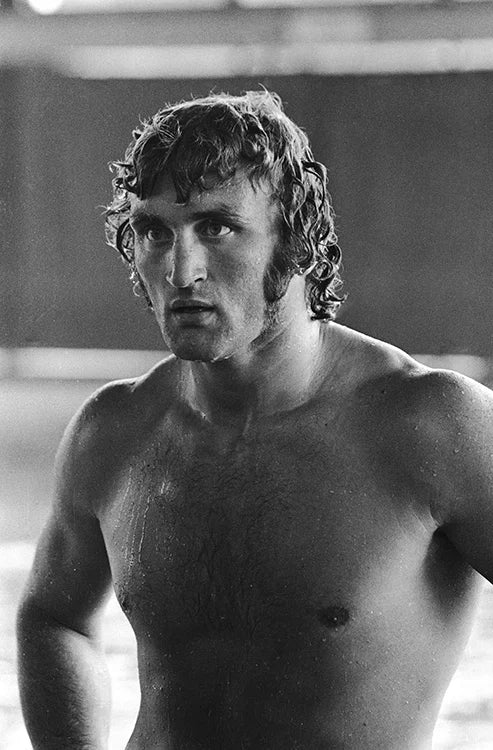
Bugner dusted himself off with gusto and entered 1972 a changed man. He won eight fights on the bounce with none of the contests lasting the distance. In addition, he reclaimed his European crown on 10 October against old foe, Juergen Blin, stopping him in the eighth round. The pair had fought a little over a year before, with Bugner claiming a split decision points victory. The win was a statement of future intent for the Hungarian born boxer.
Despite losing two out of his next five fights in 1973, the calibre of Bugner’s opponents ensured his stock rose. After defending his European title against unbeaten Dutchman Rudi Lubbers on 16 January 1971, Bugner took on The Greatest on 14 February at the Convention Centre, Las Vegas. However, this wasn’t the first time he’d shared a ring with Muhammad Ali.
When Ali was on his enforced hiatus for evading the military draft, 19 year old Bugner was called in as a sparring partner. In an interview with Fox Sports in 2016, Bugner recalled his first encounter with Ali at a restaurant in New York. ‘Ali walked into the restaurant and said, ‘So, You’re the white boy who wants to spar with me?’ Bugner replied, ‘Yes.’ Ali continued. ‘Let me tell you something right now. You’re the ugliest white thing I think I’ve ever seen in my life. Your mother must have cried when she had you.’ Bugner replied, ‘You haven’t met my sister! Now that’s ugly.’’
Despite the pair striking up a good working friendship and down the line their children attending the same school, on 14 February it was all business. Ali won a confident points decision over 12 rounds, but Bugner gave a good account of himself. So good in fact that four and a half months later, on 2 July 1973 he took on Ali’s nemesis, Smokin’ Joe Frazier at Earls Court Arena, London in front of an 18,000 strong crowd.

Philadelphia’s favourite fighting son went toe to toe with Bugner over the full 12 rounds. In a fiercely close contest, a tenth round knockdown in round 10 swung the decision Frazier’s way and yet again, Bugner walked away with a morale victory, as fringe world contenders licked their lips at the prospect of fighting him.
After successfully defending his European heavyweight strap against Italian Giuseppe Ros, Bugner took on the fearsome figure of Mac Foster, who boasted 30 stoppages in 30 victories, with only three losses. The explosive Californian was a true risk for Bugner, but behind a silky smooth jab and boxing brain, he won the fight comfortably on points at the Empire Pool on 13 November. That was Bugner’s last outing of 1973.
Over the next 15 months, Bugner racked up six straight victories, including a dominant performance over former WBA world champion, Jimmy Ellis and two defences of his European title. On 30 June 1975 at the Murdeka Stadium, Kula Lumpur, Bugner challenged Ali again, who now held the WBA and WBC world heavyweight titles.
Ali, who was now embarking on a prolific winning streak after defying the critics and defeating George Foreman the previous year, beat Bugner comfortably on points. After retiring, then making a comeback a few months later (a plan which would repeat itself a number of times), Bugner made a sturdy statement on 12 October 1976 when he took on Richard Dunn, for the British, Commonwealth and European titles.
Six seconds after the opening bell chimed, Bugner threw a straight right hand and down went Dunn. The brave Yorkshire man rose from the canvas, but never fully recovered and 20 seconds later, he was back down again. After being tagged with a crunching one-two, the Dunn was counted out at two minutes and 14 seconds of the opening session. Dunn had been stopped by Ali in five rounds in May 1975, so, completing the task in a fraction of the time once again threw Bugner back under the contender spotlight.

Ron Lyle was a feared man. When he met Bugner at Caesars Palace, Las Vegas on 20 March 1977, he was already packing a who’s who of heavyweight boxing on his professional resume. Wins over Jimmy Ellis, Earnie Shavers and Oscar Bonavena, to name a few were notable, as were losses against Ali and George Foreman – the latter being an absolute barnburner, rightly winning the title of Ring Magazine ‘Fight of The Year 1976.’
Many thought Bugner would get bombed out early by the Ohio native, but instead he put on a great boxing performance and lost out on a very close home split decision. Bugner retired again, not returning to the ring for another three and a half years.
On his return, Bugner travelled Stateside to fight Costa Rican, Gilbert Acuna, stopping the Central American fighter in six rounds. For whatever reasons, Bugner retired again, but his comeback fight on 8 May 1982 was not on a parallel to Acuna. Even without ring rust, taking on possibly heavyweight boxing’s most devastating puncher of all time was not a great idea. In the opening session at the Reunion Centre Dallas, Bugner was put to the canvas by Ernie Shavers and by round two the fight was called to a halt after Bugner sustained a terrible cut from what he insisted was a headbutt. The referee thought otherwise.

Bugner’s next seven fights had a cosmopolitan twist to them, as he fought in four different countries and relocated to a new continent. On 4 June 1983 he fought Marvis Frazier in Atlantic City, America, losing a unanimous points decision in an uneventful contest. Not sure how many fighters have fought a father and son combo over the years?
In his next two fights in early 1984, Bugner fought twice in Copenhagen, against future European champions Steffen Tangstad and Anders Eklund, gaining a majority decision win against Eklund and a split decision loss against Tangstad.
Bugner moved to Australia in 1986, where he still resides to this very day. After a two and a half year break, Bugner clocked up three successive victories on his new home turf against respected scalps, James Tillis, Greg Page and David Bey, before taking on Britain’s sweetheart of boxing, Frank Bruno.

If he felt like the foreigner after beating Britain’s beloved Henry Cooper, returning to UK soil under the new moniker of ‘Aussie Joe,’ certainly didn’t do him any favours. On 24 October 1987, Bugner took on the sculptured world title challenger in front of a very vocal crowd at White Hart Lane stadium, London. Despite a gutsy attempt from Bugner, the Gold Coast resident was stopped in the eight session. Unsurprisingly, Bugner announced his retirement yet again.
Enjoying life away from the ring, Bugner invested a substantial sum of money into a vineyard and even dabbled in acting, starring alongside martial arts sensation Jean Claude Van Damme in the film Streetfighter.
Unfortunately, the vineyard turned out to be a bad investment and he lost all his money. After eight years out of the ring, on 22 September 1995 at the Carrara Sports Complex, Gold Coast, a 45 year old Bugner returned to fight Vince Cervi for the Australian heavyweight title, gaining a wide points victory.
Despite weighing nearly 280lbs for his next fight against fellow Aussie, West Turner on 2 February 1996 in Perth, Bugner demolished West in the third session. Next up, six weeks later was the British and Commonwealth heavyweight champion, Scott Welch. Eighteen years Bugner’s junior and defending his WBO Intercontinental heavyweight crown, The Brighton Rock blasted out Bugner in six rounds at Deutschlandhalle, Charlottenburg, Germany.
Four months later, Bugner picked up the WBA Pan Asian Boxing Association title (yes – it really exists), beating Tongan born Kiwi, Young Haumona. After defending his Australian and PABA titles a further three times, Bugner took on former WBA world champion, James ‘Bonecrusher’ Smith, on 4 July 1998, on Aussie soil. The WBF world heavyweight trinket was on the line.
The fight lasted one round after 45 year old Smith dislocated his shoulder. On paper, Bugner became Australia’s first ever heavyweight world champion. After one further fight against Levi Billups on 13 June 1999, Bugner retired for good.
In an 83 fight career (69-13-1) that spanned over 32 years in four separate decades, Bugner’s swansongs and collection of lightly regarded straps (Australian title aside) towards the end of his career are not what the boxing fan should be taking away. Remember this – Joe Bugner won the British and Commonwealth titles twice and the European strap three times. He fought Muhammad Ali twice, Joe Frazier, Ernie Shavers, Ron Lyle, Henry Cooper and a host of very respected world class fighters. He was no ordinary Joe by a long stretch.
Paul Zanon, has had 11 books published, with almost all of them reaching the No1 Bestselling spot in their respective categories on Amazon. He has co-hosted boxing shows on Talk Sport, been a pundit on London Live, Boxnation and has contributed to a number of boxing publications, including, Boxing Monthly, The Ring, Daily Sport, Boxing News, Boxing Social, amongst other publications.
Contributed by Paul Zanon

“I remember leaving our village Szőreg when I was six. The Russians moved in and my mum, Margaret, moved us out. She was a single parent and she left the country with five children. She risked a long prison sentence if she was caught but she put us on a bus for a while and then we walked through the night across the border to a refugee camp in Yugoslavia.”
www.couriermail.com/au
Born in Szőreg, southern Hungary on 13 March 1950, József Kreul Bugner left his country of birth as a consequence of the Soviet Invasion and his family relocated to St Ives Cambridgeshire, Britain in 1956. Bordering the Fenlands in Huntingtonshire, Bugner, like many other boxers from the area, such as Eric Boon and Dave Boy Green, was bestowed the moniker of ‘Fen Tiger’ for a short time.
Young Bugner took up a number of sports and by the age of 14 he was national junior discuss champion. However, as he started to grow into his 6ft 4in frame, weighing north of 200lbs, boxing grabbed his undivided attention.
After 16 amateur fights (13 wins), 17 year old Bugner made the bold leap to the professional ranks. However, the Cambridgeshire resident’s maiden voyage didn’t go as planned. On 12 December 1967 he fought Birmingham truck driver, Paul Brown at the Anglo American Sports Club in Mayfair, who boasted one victory and three losses. Bugner was knocked out in the third round.
In Bugner’s next 33 fights, he clocked up 31 victories one further loss and a draw. Notable scalps along the way included Britain’s Johnny Prescott and Brian London, and a third round stoppage over the Bayonne Bleeder, Chuck Wepner (fight was stopped in the third due to Wepner sustaining a badly cut eye). The other name of note was Ray Patterson, brother of former world heavyweight champion, Floyd, who Bugner comfortably beat on points. Incredibly, he amassed this 34 fight trail by the age of 20. Unfortunately, one fight amongst that medley which Bugner would remember for the wrong reasons was against Ulric Regis on 11 March 1969. After losing the fight on points to Bugner over eight rounds, the Trinidad and Tobago fighter died four days later from a clot to the brain. The verdict on the death was classified as accidental.
Three days after his twenty first birthday, on 16 March 1971 at the Empire Pool, Wembley, Bugner took on ring veteran and British boxing legend, Henry Cooper, for his British, Commonwealth and European titles. In Cooper’s previous 11 contests, he’d only lost twice, against Floyd Patterson and Muhammad Ali, and had beaten the likes of Jack Bodell (twice), Karl Mildenberger and Billy Walker. Also, 10 out of the 11 contests were for titles. Despite being the older man by almost 16 years, Cooper was the favourite.

After 15 hard fought rounds, Bugner clinched the slimmest of victories by a quarter of a point and in doing so relieved Cooper of the British, Commonwealth and European heavyweight crowns. Cooper retired straight after and without the opportunity for a rematch Bugner was never able to fully convince the British public of his worth from under Cooper’s shadows.
After defending his European title eight weeks later against German Juergen Blin, walking away with a split decision, Bugner put all three of his crowns on the line against wily southpaw underdog, Jack Bodell, now 57-10. Beating Cooper’s former foe would confirm Bugner was able to progress to the major leagues, but unfortunately, Bugner lost a points decision against the Derbyshire favourite.
Seven weeks later on 17 November 1971 at the Astrodome, Houston, Bugner made his Stateside debut, taking a very wide points decision against Ohio fighter, Mike Boswell. Unfortunately, only one week later, back on British soil, American Larry Middleton travelled to the Ice Rink, Nottingham and put on a confident performance against Bugner, knocking him down in the tenth session, en-route to a points victory.

Bugner dusted himself off with gusto and entered 1972 a changed man. He won eight fights on the bounce with none of the contests lasting the distance. In addition, he reclaimed his European crown on 10 October against old foe, Juergen Blin, stopping him in the eighth round. The pair had fought a little over a year before, with Bugner claiming a split decision points victory. The win was a statement of future intent for the Hungarian born boxer.
Despite losing two out of his next five fights in 1973, the calibre of Bugner’s opponents ensured his stock rose. After defending his European title against unbeaten Dutchman Rudi Lubbers on 16 January 1971, Bugner took on The Greatest on 14 February at the Convention Centre, Las Vegas. However, this wasn’t the first time he’d shared a ring with Muhammad Ali.
When Ali was on his enforced hiatus for evading the military draft, 19 year old Bugner was called in as a sparring partner. In an interview with Fox Sports in 2016, Bugner recalled his first encounter with Ali at a restaurant in New York. ‘Ali walked into the restaurant and said, ‘So, You’re the white boy who wants to spar with me?’ Bugner replied, ‘Yes.’ Ali continued. ‘Let me tell you something right now. You’re the ugliest white thing I think I’ve ever seen in my life. Your mother must have cried when she had you.’ Bugner replied, ‘You haven’t met my sister! Now that’s ugly.’’
Despite the pair striking up a good working friendship and down the line their children attending the same school, on 14 February it was all business. Ali won a confident points decision over 12 rounds, but Bugner gave a good account of himself. So good in fact that four and a half months later, on 2 July 1973 he took on Ali’s nemesis, Smokin’ Joe Frazier at Earls Court Arena, London in front of an 18,000 strong crowd.

Philadelphia’s favourite fighting son went toe to toe with Bugner over the full 12 rounds. In a fiercely close contest, a tenth round knockdown in round 10 swung the decision Frazier’s way and yet again, Bugner walked away with a morale victory, as fringe world contenders licked their lips at the prospect of fighting him.
After successfully defending his European heavyweight strap against Italian Giuseppe Ros, Bugner took on the fearsome figure of Mac Foster, who boasted 30 stoppages in 30 victories, with only three losses. The explosive Californian was a true risk for Bugner, but behind a silky smooth jab and boxing brain, he won the fight comfortably on points at the Empire Pool on 13 November. That was Bugner’s last outing of 1973.
Over the next 15 months, Bugner racked up six straight victories, including a dominant performance over former WBA world champion, Jimmy Ellis and two defences of his European title. On 30 June 1975 at the Murdeka Stadium, Kula Lumpur, Bugner challenged Ali again, who now held the WBA and WBC world heavyweight titles.
Ali, who was now embarking on a prolific winning streak after defying the critics and defeating George Foreman the previous year, beat Bugner comfortably on points. After retiring, then making a comeback a few months later (a plan which would repeat itself a number of times), Bugner made a sturdy statement on 12 October 1976 when he took on Richard Dunn, for the British, Commonwealth and European titles.
Six seconds after the opening bell chimed, Bugner threw a straight right hand and down went Dunn. The brave Yorkshire man rose from the canvas, but never fully recovered and 20 seconds later, he was back down again. After being tagged with a crunching one-two, the Dunn was counted out at two minutes and 14 seconds of the opening session. Dunn had been stopped by Ali in five rounds in May 1975, so, completing the task in a fraction of the time once again threw Bugner back under the contender spotlight.

Ron Lyle was a feared man. When he met Bugner at Caesars Palace, Las Vegas on 20 March 1977, he was already packing a who’s who of heavyweight boxing on his professional resume. Wins over Jimmy Ellis, Earnie Shavers and Oscar Bonavena, to name a few were notable, as were losses against Ali and George Foreman – the latter being an absolute barnburner, rightly winning the title of Ring Magazine ‘Fight of The Year 1976.’
Many thought Bugner would get bombed out early by the Ohio native, but instead he put on a great boxing performance and lost out on a very close home split decision. Bugner retired again, not returning to the ring for another three and a half years.
On his return, Bugner travelled Stateside to fight Costa Rican, Gilbert Acuna, stopping the Central American fighter in six rounds. For whatever reasons, Bugner retired again, but his comeback fight on 8 May 1982 was not on a parallel to Acuna. Even without ring rust, taking on possibly heavyweight boxing’s most devastating puncher of all time was not a great idea. In the opening session at the Reunion Centre Dallas, Bugner was put to the canvas by Ernie Shavers and by round two the fight was called to a halt after Bugner sustained a terrible cut from what he insisted was a headbutt. The referee thought otherwise.

Bugner’s next seven fights had a cosmopolitan twist to them, as he fought in four different countries and relocated to a new continent. On 4 June 1983 he fought Marvis Frazier in Atlantic City, America, losing a unanimous points decision in an uneventful contest. Not sure how many fighters have fought a father and son combo over the years?
In his next two fights in early 1984, Bugner fought twice in Copenhagen, against future European champions Steffen Tangstad and Anders Eklund, gaining a majority decision win against Eklund and a split decision loss against Tangstad.
Bugner moved to Australia in 1986, where he still resides to this very day. After a two and a half year break, Bugner clocked up three successive victories on his new home turf against respected scalps, James Tillis, Greg Page and David Bey, before taking on Britain’s sweetheart of boxing, Frank Bruno.

If he felt like the foreigner after beating Britain’s beloved Henry Cooper, returning to UK soil under the new moniker of ‘Aussie Joe,’ certainly didn’t do him any favours. On 24 October 1987, Bugner took on the sculptured world title challenger in front of a very vocal crowd at White Hart Lane stadium, London. Despite a gutsy attempt from Bugner, the Gold Coast resident was stopped in the eight session. Unsurprisingly, Bugner announced his retirement yet again.
Enjoying life away from the ring, Bugner invested a substantial sum of money into a vineyard and even dabbled in acting, starring alongside martial arts sensation Jean Claude Van Damme in the film Streetfighter.
Unfortunately, the vineyard turned out to be a bad investment and he lost all his money. After eight years out of the ring, on 22 September 1995 at the Carrara Sports Complex, Gold Coast, a 45 year old Bugner returned to fight Vince Cervi for the Australian heavyweight title, gaining a wide points victory.
Despite weighing nearly 280lbs for his next fight against fellow Aussie, West Turner on 2 February 1996 in Perth, Bugner demolished West in the third session. Next up, six weeks later was the British and Commonwealth heavyweight champion, Scott Welch. Eighteen years Bugner’s junior and defending his WBO Intercontinental heavyweight crown, The Brighton Rock blasted out Bugner in six rounds at Deutschlandhalle, Charlottenburg, Germany.
Four months later, Bugner picked up the WBA Pan Asian Boxing Association title (yes – it really exists), beating Tongan born Kiwi, Young Haumona. After defending his Australian and PABA titles a further three times, Bugner took on former WBA world champion, James ‘Bonecrusher’ Smith, on 4 July 1998, on Aussie soil. The WBF world heavyweight trinket was on the line.
The fight lasted one round after 45 year old Smith dislocated his shoulder. On paper, Bugner became Australia’s first ever heavyweight world champion. After one further fight against Levi Billups on 13 June 1999, Bugner retired for good.
In an 83 fight career (69-13-1) that spanned over 32 years in four separate decades, Bugner’s swansongs and collection of lightly regarded straps (Australian title aside) towards the end of his career are not what the boxing fan should be taking away. Remember this – Joe Bugner won the British and Commonwealth titles twice and the European strap three times. He fought Muhammad Ali twice, Joe Frazier, Ernie Shavers, Ron Lyle, Henry Cooper and a host of very respected world class fighters. He was no ordinary Joe by a long stretch.
Paul Zanon, has had 11 books published, with almost all of them reaching the No1 Bestselling spot in their respective categories on Amazon. He has co-hosted boxing shows on Talk Sport, been a pundit on London Live, Boxnation and has contributed to a number of boxing publications, including, Boxing Monthly, The Ring, Daily Sport, Boxing News, Boxing Social, amongst other publications.


